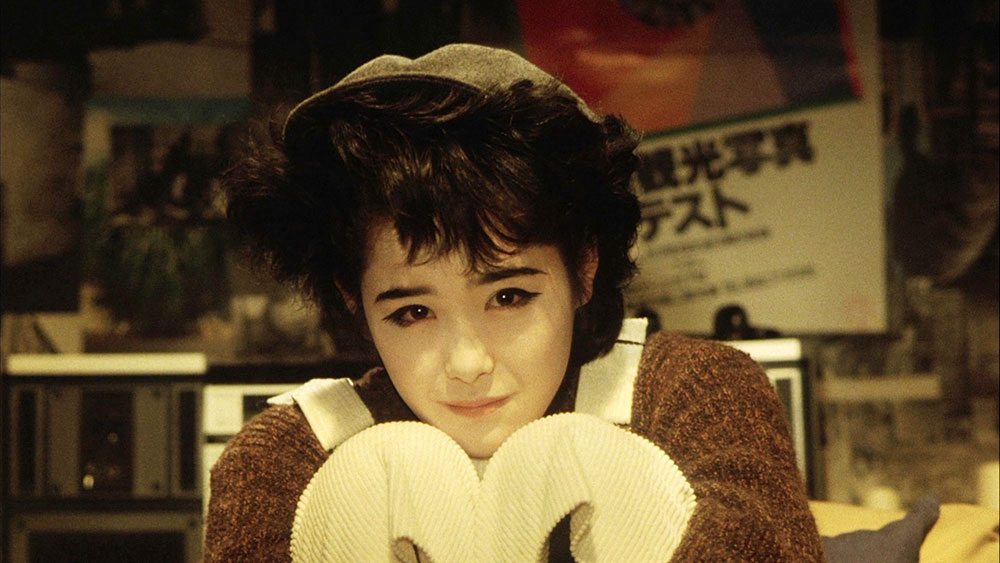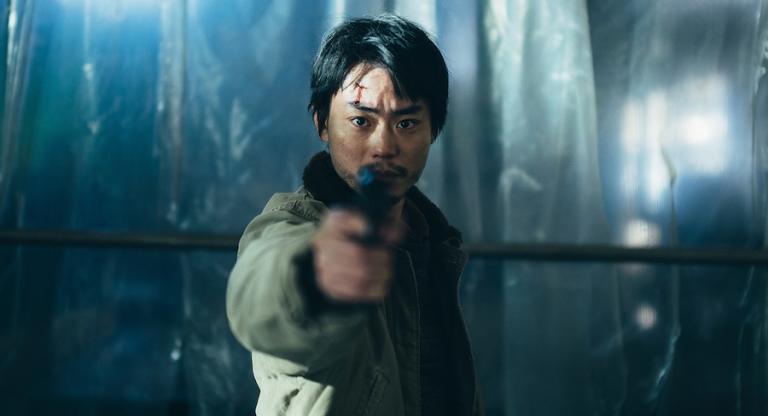Nobuhiko Obayashi’s spate of teen-oriented dramas and comedies from the 1980s stand out from his prolific career. They simultaneously expand upon his early experimental work—especially in their use of hand-drawn special effects—while targeting a wider audience and preserving Obayashi’s personal set of references. Lonely Heart (1985) opens with Hiruko (Toshinori Omi), a teenage boy, looking at Obayashi’s hometown of Onomichi through the viewfinder of his camera. His framing makes it look like a postcard and he wonders, “why is it so nostalgic even to those who are seeing it for the first time?”
Hiruko hangs out with two male friends around his school, but spends most of his free time gazing through the window at a girl who plays the piano in an empty classroom. He admits he has played “hide-and-seek” with her through his viewfinder and nicknamed her “Miss Lonely.” He views her as a mysterious creature and eventually develops an infatuation with her. As he experiences romantic longing for the first time, Miss Lonelyheart, a phantom who looks like his crush with white face paint on, begins appearing in his bedroom at unforeseen moments. (Pop singer Yasuko Tomita plays both roles.)
The similarities between Miss Lonely, Miss Lonelyheart, and Hiruko’s mother quickly establish Freudian overtones in the film, especially in scenes that contain a sexual underpinning that’s not typical of most mother/son interactions. In one of these scenes, Hiruko’s mother walks in on him looking through photos of nude women, her approval reflected in a gesture of approval. This closeness is enhanced by the fact that Hiruko’s father, a Buddhist monk, is mostly absent from his life. More than a manic pixie dream girl, Miss Lonelyheart is a trickster, with a connection to Hiruko’s family revealed late in the film. Hiruko’s encounter with her suggests that he needs to grow up.
Near the end, the film takes a major leap in time and reveals Hiruko as a middle-aged man reminiscing on his youth. It becomes clear that learning to appreciate women as people, rather than as projections of his fantasies, required him to understand his mother first. Obayashi’s film, which begins as a goofy comedy with regrettable sexist jokes, ultimately reveals a more serious interest in exploring what it means to mature. Obayashi is interested in nostalgia, but also recognizes this impulse as unsettling.
Lonely Heart screens tonight, February 8, at Japan Society on 16mm as part of the series “Obayashi ‘80s: The Onomichi Trilogy & Kadokawa Years.”


